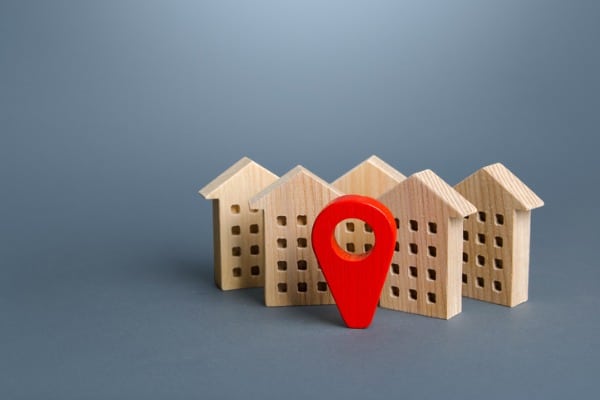
Purchasing a new house is one of the most important decisions you'll ever make in your life. In order to avoid any regrets, it's incredibly important that you do your research and take the necessary steps before signing on the dotted line.
This blog post discusses 6 tips to keep in mind when purchasing a new home.
Quick Navigation
Get Pre-approved For A Mortgage
Not being pre-approved for a mortgage will slow down the process of your home purchase and increase the chances that you'll miss deadlines. Start with this step first to avoid any delays.
A mortgage lender will want you to have a good credit rating and be able to show the ability to make payments on time.
If you don't qualify for a traditional loan, search online for programs like VA loans, FHA loans, USDA Rural Housing Loans, or even down payment assistance grants. You'll still need excellent credit in order to get approved, however.
Create An Ideal Budget
It’s very important to be realistic with your expectations, as there are many factors that come into play when purchasing a new home. For example, buying a new house means having enough money for down payments and the necessary monthly costs associated with owning one.
It also helps to create an ideal budget before looking at any homes because it will help narrow things down quite nicely in terms of what's available within your price range without feeling overwhelmed by all the choices out there.
The best way to do this is to start by estimating your monthly housing costs, which include mortgage payments, utilities like electricity and water service, homeowner’s insurance premiums, property taxes, and homeowners association (HOA) fees. Once you have that information in front of you it will be much easier to set a ballpark figure for what type of house you can afford based on how many rooms you need as well as the square footage.
Also, keep in time any time an unexpected expense pops up; such as an emergency home improvement or medical issue – these are things that will not only affect your budget but could even take away from other areas like retirement savings if they're not planned for accordingly.
Research The Neighborhood
It is important to research the neighborhood that it is in. This includes things such as crime rates, noise levels, and so forth. The neighborhood should be researched before the house is found so that it can be determined whether or not it will work.
It is important to know what kind of crime rates are in this area and how safe it would feel for a person who may live there on their own. There also needs to be an analysis done about noise levels as well. Particularly if you or someone in your household works from home then you need to make sure the place isn't too noisy otherwise job performance could suffer.
Find Out What's Included In The Home Purchase
If you are working with a real estate agent, ask him or her to provide you with the list of what's included in the home purchase. For example, Military Families Selling Their Homes are likely to be offering up their furniture as well because they move around a lot. This will help ensure that there is no confusion about any extras costs and to make sure that all items are accounted for before closing on your new house!
You may also want to speak to a lawyer who specializes in selling homes as well as someone from an escrow company handling the sale. They'll be able to tell you some things like whether appliances need replacing (just so there aren't surprises at closing time) and which utilities are going onto your bill.
Additionally, find out if it needs major renovations and how much these might cost. It’s always best not to purchase a home that needs major renovations, because these can be expensive and time-consuming. If you are moving to an HOA community, any renovations and home upgrades you wish to do will have to be approved by them before they are able to take place.
Should you run into difficulty with this, and wish to change the legislation, you will need to become an elected HOA member yourself so that you can have a hand in making the policies. During elections, your community may make use of something like these election services by Pro-Ei to make sure that is a fair contest and that should you become elected, it was all above the belt and legitimate, meaning all you have to worry about is getting the changes you are looking for sorted.
Consider The Location Of The House
Are schools, shops, parks, and other amenities nearby? The location of the house is one of the most important factors to consider. You want your new home to be close enough for you and your family. For instance, if there are great schools in a certain area or it's near shops, but not too far from where you work then this could make sense. Being able to walk or bike places also means saving on gas money each month.
Further, check if the area is well serviced by utilities. These are things like electricity, water, natural gas, and internet service providers which can vary from one locale to another. Some of these may not be available in certain areas or they might have higher rates than others so it’s important you know about this beforehand.
Find Out The Zoning Rules In The Area

Find out the zoning rules in the area you want to buy. As a buyer, you’ll need to know what type of house you’re looking for before a mortgage company is able to offer you actionable refinance loan information. For example, if you want a small historic Craftsman bungalow on one-third acre, then you should look at neighborhoods with low-density housing and large lots.
If you’re interested in high-quality living spaces that have access to local amenities like shops and schools, then you’ll want to find areas zoned R-25 which means 25 residential units per acre.
If you prefer a neighborhood to be near parks or open space, then you’ll want to look into higher densities such as R-40 for 40 residential units per acre.
It's important to note that zoning laws vary depending on the city and region, so you should contact your local municipality office before looking at properties in person. However, you’ll find that many lenders offer pre-approval online which can help you narrow down what types of houses you’re interested in purchasing based on property taxes and other factors related to loan qualification.
Consider all the factors that will affect your life and get pre-approved for a mortgage. It’s important to know what you can afford, so it would be wise to create an ideal budget before you start looking at homes. Researching the neighborhood is also key because crime rates and school quality are two things that could have a big impact on your family's happiness. You should check out what's included in the home purchase as well; some houses come with appliances while others don't include those or even electricity!
